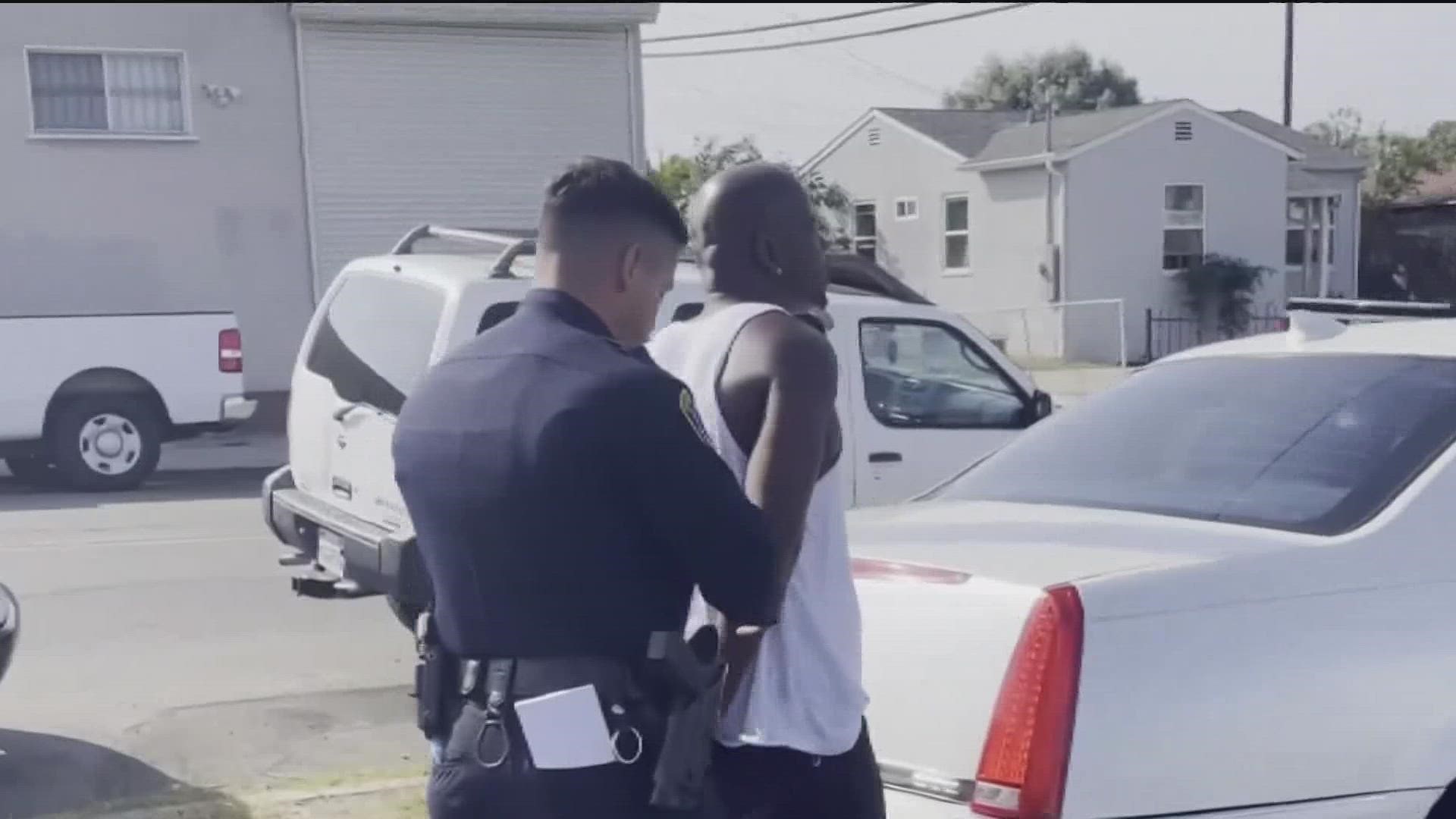SAN DIEGO — Two local community groups are speaking out against a proposed ordinance that would change how San Diego Police conduct traffic stops.
It's called the “Protect Act.”
Supporters say it will reduce racial profiling, but opponents argue it would make San Diego more dangerous.
On one of its most recent Instagram posts, the San Diego Police Officers Association thanked the Pacific Beach Town Council for voting to oppose the "Protect Act."
The council first learned about the proposal in June, then took a formal vote earlier this month.
"We spent a couple of months digesting, and came to the consensus that we just couldn't support the “Protect Act," said Marcella Bothwell, President of the Pacific Beach Town Council.
She says ultimately it comes down to safety.
PB commonly sees DUI drivers.
More recently, Bothwell says gun violence has also been an issue in the area.
"Take Belmont Park. We have had a lot of shootings and gang activity there. We can't take away the tools the police use to get the guns off the streets,” said Bothwell.
The PB Town Council joins the La Jolla Town Council, which also voted to oppose the “Protect Act.”
In a letter to councilman Joe LaCava, the La Jolla Town Council wrote in part, "It is paramount that our Police Department be able to utilize widely accepted lawful tools in their mission to keep us safe."
The “Protect Act” was proposed by San Diego's Coalition for Police Accountability and Transparency.
The goal is to reduce racial profiling.
If passed the ordinance would ban pretextual stops for certain equipment violations, including “expired registration; failure to have a light illuminating a license plate; defective and unsafe equipment; absence of functional taillights, headlights, turn signals, brake lights or a high mount stop light; absence of an exhaust system that prevents excessive or unusual levels of noise; having sun shading materials and/or tinting films; or having objects suspended in the vehicle,” according to the proposed ordinance.
Instead of being stopped, drivers with equipment violations would receive “fix-it” notices in the mail.
The ordinance, as written, also would require probable cause rather than reasonable suspicion to stop a person.
Additionally, it would prohibit officers from questioning drivers about offenses unrelated to the traffic violation, “unless there is probable cause that the person stopped has committed, is committing, or is about to commit a crime other than the offense for which such person was stopped.”
"So, if I stopped someone at two in the morning for driving without headlights on, I can ask them why were they driving without headlights on, but I can’t ask them if they've been drinking," said Jared Wilson, President of the San Diego Police Officers Association.
Wilson's been visiting community group meetings to campaign against the “Protect Act,” warning if passed, the impacts will be felt city-wide.
“The “Protect Act is falsely named. It doesn't do anything to protect anyone and it really limits police authority in the city more than anywhere else in the country,” said Wilson.
But, proponents say some of the tactics officers use now are discriminatory.
Social justice leaders point to three - separate - studies in San Diego, that showed SDPD officers are more likely to pull over black drivers than white drivers, and more likely to search them.
When CBS8 spoke to San Diego city councilwoman Monica Montgomery Steppe back in May about the “Protect Act,” she voiced her support and explained why.
"The disparities are clear. We are looking to reduce and eliminate those. Whatever ordinance that we have to pass that will provide that balance, that will keep our community safe, and deal with these disparities, that's what we're going to do."
At this point, it’s unclear when or if the city council will vote on the proposal.
At last check, it's undergoing an outside legal review.
WATCH RELATED: The Protect Act aims to reduce racial profiling by SDPD

